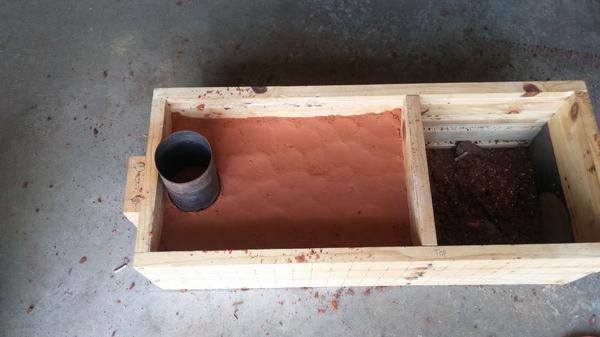The Ultimate Guide To Alcast Company
The Ultimate Guide To Alcast Company
Blog Article
Alcast Company Fundamentals Explained
Table of ContentsThe Main Principles Of Alcast Company Alcast Company Things To Know Before You BuyHow Alcast Company can Save You Time, Stress, and Money.The Alcast Company IdeasUnknown Facts About Alcast CompanyGetting My Alcast Company To Work
The subtle difference hinges on the chemical content. Chemical Comparison of Cast Aluminum Alloys Silicon advertises castability by reducing the alloy's melting temperature level and enhancing fluidness throughout spreading. It plays a crucial function in enabling detailed molds to be loaded accurately. Furthermore, silicon adds to the alloy's strength and wear resistance, making it important in applications where durability is vital, such as auto parts and engine parts.It likewise boosts the machinability of the alloy, making it easier to refine into ended up items. In this method, iron contributes to the total workability of aluminum alloys.
Manganese contributes to the strength of aluminum alloys and improves workability (Casting Foundry). It is generally made use of in functioned aluminum items like sheets, extrusions, and profiles. The presence of manganese help in the alloy's formability and resistance to breaking during manufacture procedures. Magnesium is a lightweight component that supplies strength and influence resistance to aluminum alloys.
Alcast Company for Dummies
It enables the manufacturing of light-weight components with exceptional mechanical buildings. Zinc boosts the castability of light weight aluminum alloys and assists regulate the solidification process throughout spreading. It improves the alloy's toughness and solidity. It is commonly found in applications where complex forms and great information are necessary, such as ornamental spreadings and certain vehicle components.

The key thermal conductivity, tensile stamina, yield stamina, and prolongation vary. Select ideal resources according to the performance of the target product created. Among the above alloys, A356 has the highest thermal conductivity, and A380 and ADC12 have the cheapest. The tensile limit is the opposite. A360 has the best return strength and the highest elongation price.
How Alcast Company can Save You Time, Stress, and Money.

In precision spreading, 6063 is appropriate for applications where elaborate geometries and top quality surface area finishes are critical. Instances consist of telecommunication units, where the alloy's superior formability permits streamlined and cosmetically pleasing styles while preserving architectural honesty. In the Lights Solutions industry, precision-cast 6063 components develop elegant and effective illumination components that call for intricate shapes and great thermal efficiency.
The A360 shows premium elongation, making it optimal for complicated and thin-walled elements. In precision spreading applications, A360 is appropriate for markets such as Consumer Electronics, Telecommunication, and Power Tools.
What Does Alcast Company Do?
Its one-of-a-kind buildings make A360 an important selection for precision casting in these sectors, boosting product longevity and quality. Light weight aluminum alloy 380, or A380, is an extensively made use of casting alloy with a number of distinctive features. It offers outstanding castability, making it an excellent selection for precision casting. A380 displays good fluidness when molten, ensuring elaborate and in-depth molds are precisely replicated.
In precision spreading, aluminum 413 radiates in the Customer Electronics and Power Devices industries. This alloy's superior deterioration resistance makes it a superb option for outside applications, making sure lasting, sturdy products in the mentioned sectors.
More About Alcast Company
As soon as you have actually determined that the aluminum die casting procedure appropriates for your job, a crucial next step is determining on the most suitable alloy. The light weight aluminum alloy you select will considerably impact both the spreading procedure and the residential or commercial properties of the last product. Due to this, you have to make your decision thoroughly and take an enlightened approach.
Establishing the most suitable aluminum alloy for your application will indicate considering a vast variety of characteristics. These relative alloy features adhere to the North American Die Spreading Organization's guidelines, and we've separated them right into official statement 2 classifications. The first category addresses alloy qualities that impact the manufacturing procedure. The second covers qualities impacting the residential or commercial properties of the final product.
Alcast Company - The Facts
The alloy you choose for die spreading straight affects numerous elements of the casting procedure, like exactly how very easy the alloy is to collaborate with and if it is vulnerable to casting issues. Hot breaking, additionally recognized as solidification splitting, is a typical die casting defect for light weight aluminum alloys that can result in interior or surface-level tears or fractures.
Particular aluminum alloys are a lot more susceptible to hot breaking than others, and your option should consider this. It can damage both the cast and the die, so you ought to look for alloys with high anti-soldering homes.
Deterioration resistance, which is currently a noteworthy quality of light weight aluminum, can vary considerably from alloy to alloy and is a necessary characteristic to consider depending on the environmental problems your item will certainly be revealed to (aluminum foundry). Wear resistance is another residential property generally sought in aluminum products and can differentiate some alloys
Report this page